(CTO)- On the morning of January 28, at the 13th National Party Congress, Comrade Le Quang Manh, Secretary of the Can Tho City Party Committee, delivered a speech on "Building Can Tho into a national and regional center of agricultural science and technology". Can Tho Newspaper respectfully introduces the full text of this speech.
Comrade Le Quang Manh, Secretary of the Can Tho City Party Committee. Photo: Communist Party of Vietnam Online Newspaper
Dear Presidium,
Dear delegates attending the Congress,
The delegation of Can Tho city would like to express its high agreement with the content of the documents submitted to the Congress. With the permission of the Presidium, on behalf of the delegation of Can Tho city, I would like to present a speech on the topic "Building Can Tho to become a national and regional center of agricultural science and technology" to help illustrate and clarify the content of agricultural development in the documents of the Congress.
Dear Congress,
The Mekong River Delta (MRD) covers an area of 3.94 million hectares, accounting for 12% of the country's total area; has a population of 17.5 million people, accounting for 21% of the country's population; is a fertile land with favorable natural conditions for agricultural and aquatic development. In particular, the MRD has an important geo-economic and geopolitical position because it is located in the center of the ASEAN region, with advantages in developing the marine economy, border trade and international trade.
The Mekong Delta agriculture sector accounts for 47% of the area and 55% of rice output, more than 90% of rice exports, 70% of the area and output of aquatic products of the whole country and is maintaining a high growth rate, reaching over 3%/year in the period 2016 - 2018, higher than the national average growth rate (2.67%/year). Mekong Delta agriculture contributes 34.6% of the country's agricultural GDP and 33.5% of the region's GDP. Currently, our country is ranked 4th in production and 5th in seafood export in the world; Vietnam's rice export output accounts for about 20% of the total rice export volume worldwide.
Today's agricultural achievements are a development process in which the role of science and technology (S&T) is very important. Looking back at the history of agricultural development in the Mekong Delta, from the period of 1975 - 1986 when the whole country focused on economic recovery and food shortages, brown planthoppers raged on rice in the provinces, creating a very difficult context for agricultural development, the State advocated that the Mekong Delta must develop rice production for the goal of national food security. Scientists from institutes and schools in and outside the Mekong Delta have focused on researching and applying science and technology to rice plants in a multidisciplinary approach to breeding new varieties, improving cultivation techniques; managing and using land and water, expanding acreage, intensification and increasing crops, etc., which has brought great success; from a country with a lack of food, it has become a rice exporting country and has continued to increase rapidly in recent years; The region's rice output increased from 19 million tons in 1989 to about 43 million tons in 2019, accordingly, rice export output increased from 1.3 million tons to 6.5 - 7 million tons/year, reaching an export value of about 0.4 billion USD to about 3.2 - 3.5 billion USD/year. Similarly, the second main economic sector of the region, aquaculture, also developed rapidly thanks to the impact of science and technology; aquaculture output increased rapidly from 0.5 million tons in 1990 to nearly 3 million tons in 2020, especially in the tra fish and brackish water shrimp industries.
Agriculture in the Mekong Delta has continuously played an important role in the socio-economic development of the region and the whole country, and has repeatedly played the role of a pillar when the economy is in difficulty. However, in the current context, agriculture in the Mekong Delta is facing many challenges and difficulties, leading to the contribution of the Mekong Delta to the country's GDP increasingly decreasing, from 27% (in 1990) to 18% (in 2020). Food and food security requires the agricultural sector to develop in the direction of increasing productivity and output; therefore, it is slow to shift to sectors with higher economic efficiency. In addition, policies for agricultural development in the direction of high technology, production in the direction of quality and sustainability, ... especially policies for producers still have many shortcomings, even causing the Mekong Delta to fall into a dilemma. Producers face many worries and great pressure from the market, low profits, slow improvement in living standards, etc., which partly affects the trend of migration from rural areas to other areas due to lack of jobs and low income.
In addition to the above "inadequacies", the Mekong Delta is facing a new challenge, which is the great impact of climate change. The Mekong Delta is considered one of the three deltas in the world that will be most affected by climate change; it is forecasted that the rainfall in the Mekong Delta will decrease by 10 - 20% at the beginning of the season and increase at the end of the season, the temperature will increase by about 2 degrees Celsius in the years 2030 - 2040, the sea level will rise by 0.33 - 1.0m in the years 2050 - 2100. Thus, the advantages of natural conditions of the Region will change, the agricultural sector is forecasted to be the most affected, the production system and strengths of the agricultural sector must be adjusted to be compatible with the impact of climate change and timely solutions must be found for sustainable development.
Dear Congress,
According to the United Nations, the world population will reach 9.2 billion people by 2050, the demand for food will nearly double compared to the present time. Meanwhile, the impact of climate change is causing natural conditions suitable for agricultural cultivation to increasingly decline; natural disasters and epidemics appear with increasing frequency. The Mekong Delta is predicted to become one of the important agricultural production centers of Asia to supply agricultural products to the world and the aquaculture industry of the Mekong Delta has a competitive advantage compared to other regions. To realize this future, the approach is to take the practical context of the region and the progress of science and technology as the foundation for development, there needs to be a breakthrough in thinking and institutions, strengthening connections within and outside the region and taking regional development goals as the orientation. In particular, for the agricultural sector, Resolution 120/NQ-CP dated November 17, 2017 of the Government on sustainable development of the Mekong Delta adapting to climate change (Resolution 120/NQ-CP) clearly states the viewpoint of changing the development mindset, shifting from the mindset of purely agricultural production, mainly rice production to the mindset of developing a diversified agricultural economy, meeting market demand, shifting from development based on quantity to quality; building new rural areas associated with strong development of high-tech agriculture, organic agriculture and clean agriculture associated with value chains and brand building; focusing on developing processing industry and supporting industry associated with agricultural economic development.
The economic development aspirations of the Mekong Delta require relying on the potential advantages of the region's agriculture to accelerate growth. In the past, the region's growth relied mainly on the expansion of land capital and labor force; but these valuable resources have reached their limits. Future growth can only rely on science and technology to increase total factor productivity (TFP).
Dear Congress,
Can Tho City is located in the center of the largest delta region of our country; although Can Tho City is not the locality with the largest agricultural production area in the Region; but Can Tho is a place that converges many potentials, advantages and has many favorable conditions to become the center of science and technology in agriculture of the country and the region. This is prominent in a number of aspects such as:
Firstly, Can Tho has initially played the role of the Mekong Delta region's center in terms of trade, services, education - training and science and technology. With nearly 92% of GRDP in the industrial and service sectors, in recent times, the City has played an important role in the production - processing and trade of key agricultural value chains in the Mekong Delta. It is the largest goods distribution center in the Mekong Delta; it is the place that focuses on connecting market demand (domestic and export) with raw material production areas.
Second, Can Tho is the locality with the best conditions in the region in terms of science and technology potential, both human resources and facilities, especially in the fields of agriculture and high-tech agriculture. With a diverse system of universities and research institutes (including 73 units, 7,455 people with scientific research activities), including leading units in the country and region in the field of agriculture such as Can Tho University, Can Tho University of Technology, Nam Can Tho University, Mekong Delta Rice Research Institute... with a large team of researchers in agriculture (cultivation, livestock, aquaculture, ...) and related fields such as biotechnology, technology, information technology, ... The field of agriculture and aquaculture of Can Tho University is ranked in the top 300 universities in the world according to the 2020 ranking of the World University Ranking System (QS), the only unit in Vietnam ranked in this high group. Furthermore, large investment projects to upgrade research facilities currently being implemented in the City for the fields of agriculture, aquaculture and environment will significantly change the conditions and potential of science and technology, and will become the driving force for agricultural development, especially high-tech agriculture of Can Tho city and the region.
Third, the City has clearly defined its goals and resolutely implemented the policy of "making science and technology truly the top national policy" of the 12th National Party Congress, Resolution No. 02-NQ/TU dated August 1, 2016 of the Can Tho City Party Committee on the development and application of science and technology. As a result, the initial formation of a science and technology ecosystem, innovation and creativity to promote the development and application of science and technology in agriculture with a system of schools, institutes, start-up investment funds, a network linking start-up enterprises in agriculture, technology trading floors (Catex.vn), agricultural product trading floors... The City is also implementing procedures for planning and building the Can Tho High-Tech Park, the Information Technology Park and three high-tech agricultural zones along with promoting and attracting investors; promote linkages and form many areas for commercial rice production, vegetable and fruit growing areas and aquaculture in a concentrated, large-scale direction, facilitating the synchronous application of scientific and technological advances. In addition, Can Tho always creates favorable conditions to support the development of the science and technology market; promote the application of science and technology in production through the formation of a series of intermediary technology promotion organizations such as: Center for Application of Science and Technology Advances, Can Tho Center for Technical Standards and Quality Measurement, Vietnam - Korea Industrial Technology Incubator... At the same time, pay attention to inviting corporations and large enterprises to invest in projects to develop high-tech agricultural products or provide services for agriculture.
Fourthly, in recent years, Can Tho's science and technology products and services have increasingly met the needs of the Mekong Delta market, the whole country, and some products can compete with foreign products such as: Commercialization of IoT systems to monitor water quality in aquaculture; Automatic environmental monitoring - warning and control systems in agriculture; Organic vegetable growing model; Shared farm model; CO2 control system in greenhouses; Drip irrigation system; Solar cocoa drying equipment; Wireless sensor equipment for agricultural production; Remote irrigation control equipment in agriculture; Equipment for monitoring and controlling lighting via mobile networks; Application of cold plasma technology to treat domestic water and aquaculture...
Dear Congress,
Although achieving some initial results as mentioned above, the science and technology potential of the Mekong Delta in general and Can Tho in particular still has many bottlenecks that need to be focused on to be resolved, as Resolution 120/NQ-CP clearly stated that "the rate of application of advanced science and technology in the Region is lower than the national average, high-quality human resources are tending to shift to other localities". The limitation in science and technology development is not only the story of the Mekong Delta. Assessing this issue, the Draft Document of the 13th National Congress clearly stated: "Science and technology has not really become a driving force to improve labor productivity, competitiveness, and promote socio-economic development. The national science and technology level is generally still far behind the leading group in the region".
The good news is that the global technology trend and the socio-economic context of the Region are creating new opportunities for agricultural science and technology in Can Tho to overcome previous bottlenecks to move to a higher stage of development such as (i) the 4th Industrial Revolution, (ii) the economic growth potential of the whole country, (iii) the wave of investment in high-tech agriculture by large domestic and foreign enterprises, (iv) the early completion of infrastructure projects connecting the framework of the Mekong Delta Region.
Taking advantage of the above opportunities, although there are still many difficulties, with the potential, advantages and initial achievements as well as facing the development requirements of the Region, the Party Committee, government and people of Can Tho city are determined to successfully implement Resolution No. 59-NQ/TW dated August 5, 2020 of the Politburo "On the construction and development of Can Tho city to 2030, with a vision to 2045" which has oriented the development of Can Tho to become a center of science and technology in agriculture of the country and the region. Because the development of Can Tho city is not only for Can Tho but also must "demonstrate the role of the center of the Region, leading and having a positive spillover effect on the socio-economic development of other localities in the Region" .
To do this, Can Tho city proposes solutions for developing science and technology in the agricultural sector, as follows:
Firstly, in terms of development perspective, the City must focus on strongly transforming science and technology activities and innovation into market mechanisms with a system of solutions to promote both the supply side - that is, the research and development potential of the City's science and technology - and the demand side of science and technology from agricultural enterprises and farmers, in sync with solutions to link supply and demand, and develop an effectively operating science and technology market.
Second, focus on synchronously perfecting the institution for developing and applying science and technology. In a complete market economy, promoting the application of science and technology for innovation is not a goal in itself. In fact, it is a method through which people and businesses improve product quality, lower costs and gain advantages over their competitors. Enterprises become high-tech agricultural enterprises and promote the application of science and technology not because they want to but because they are forced to do so, otherwise their competitors will offer better products at lower prices and will take away market share, revenue and profits. Thus, the institution for developing and applying science and technology needs to be urgently perfected in the direction of supporting in the healthiest and most effective way the competition between research organizations and enterprises applying science and technology to identify and from there focus on promoting which organizations and enterprises can commercialize knowledge in the best way.
Third, increase investment in improving the city's science and technology potential (supply side) with the increasing role of the business sector. There is a policy of prioritizing investment in developing highly qualified agricultural resources for scientific research institutes, universities and scientific units of the city; focus on investment in agricultural research and development activities, especially high-tech agriculture on the basis of investment according to Resolution No. 120/NQ-CP dated November 17, 2017 of the Government for the Mekong Delta, especially for universities and research institutes with strengths in agriculture, biotechnology, preservation and processing technology; attract and call on large enterprises and international organizations to invest or co-invest and sponsor the construction of national and regional agricultural research institutes and centers in Can Tho city.
Fourth, promote the demand side for science and technology, consider enterprises and farmers as the center of science and technology activities; including measures to encourage farmers to study and become more active in absorbing science and technology products, encourage farmers to access science, promote initiatives, improve techniques, invent and apply science and technology to agricultural production; promotion programs, attract domestic and foreign enterprises to invest in high-tech agricultural fields in the Mekong Delta, credit support policies for technological innovation in agricultural production. Increase land use limits so that farmers and agricultural enterprises have conditions to mechanize and apply more science and technology in agricultural production. The city proactively orders research projects, high-tech applications in the agricultural sector, creating breakthroughs for the city's development, and driving the development of the entire Mekong Delta region.
Fifth, promote solutions to connect supply and demand of the science and technology market through programs to develop trading floors and intermediary organizations such as the Center for Application of Science and Technology Advances, the Can Tho Center for Technical Standards and Quality Measurement, etc. to connect the supply of products from research institutes with the demand of businesses and farmers in the Mekong Delta. Increase the rate of application of science and technology in production, develop more technology incubators, high-tech agricultural zones, information technology zones, etc. to shorten the gap from theory to practice. Expand cooperation activities, connect, and closely and effectively link between Can Tho city and localities in the region. Develop both the breadth and depth of the science and technology ecosystem through sustainable and systematic programs and solutions not only within the space of Can Tho city but also as a common science and technology ecosystem of the entire Mekong Delta region.
Dear Congress,
Recognizing the role and position of the center of the Mekong Delta region, Can Tho City Party Committee has been developing policies and strategies ( such as identifying science and technology as a breakthrough, issuing a specialized resolution on enhancing the application of science and technology... ) and orienting to become a center for creating science and technology solutions in agricultural development, especially high-tech agriculture, contributing to the socio-economic development of the city, the region and the whole country.
Although there are many difficulties and challenges ahead, we promise the Congress and the Central Committee that we will be determined to maintain solidarity and unity within the Party, closely connect with the people, create more strength, promote the will and spirit of self-reliance, reach out to seize all opportunities, properly exploit the potential, potential and advantages of the locality to successfully implement the goals set by the Can Tho City Party Committee at the recent Congress, and contribute most positively to the victory of the Resolution of the 13th National Party Congress.
On the eve of the New Year - Spring Tan Suu 2021, on behalf of the Delegation of Can Tho City Party Committee, I would like to wish all delegates good health, happiness and success. Wishing the 13th National Congress of the Party a great success.
Thank you very much and best regards.
Video clip source: Can Tho City Radio and Television Station
PV
Source link


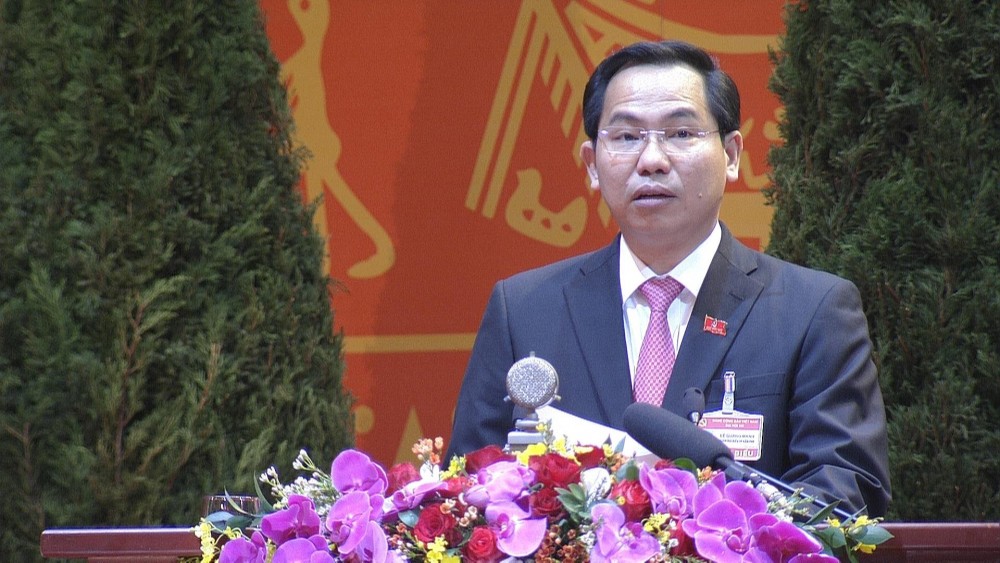
![[Photo] More than 124,000 candidates in Hanoi complete procedures for the 2025 High School Graduation Exam](https://vphoto.vietnam.vn/thumb/1200x675/vietnam/resource/IMAGE/2025/6/25/fa62985b10464d6a943b58699098ae3f)

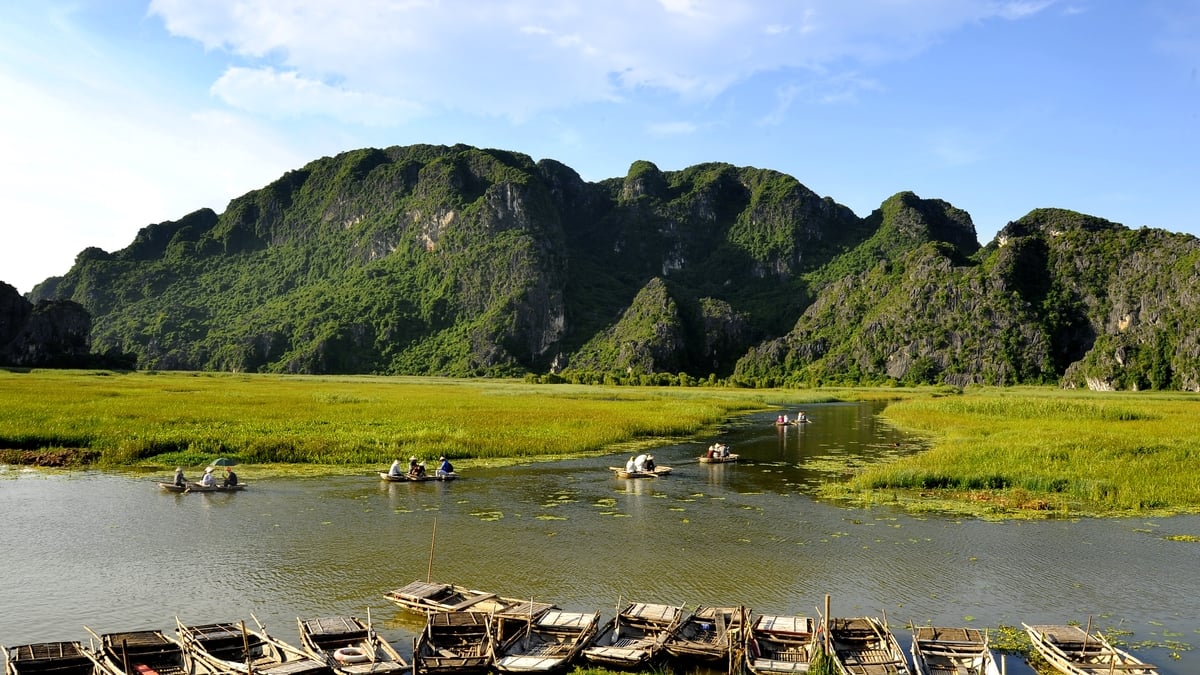
![[Photo] General Secretary To Lam works with the Standing Committee of Quang Binh and Quang Tri Provincial Party Committees](https://vphoto.vietnam.vn/thumb/1200x675/vietnam/resource/IMAGE/2025/6/25/6acdc70e139d44beaef4133fefbe2c7f)

![[Photo] First training session in preparation for the parade to celebrate the 80th anniversary of National Day, September 2nd](https://vphoto.vietnam.vn/thumb/1200x675/vietnam/resource/IMAGE/2025/6/25/ebf0364280904c019e24ade59fb08b18)


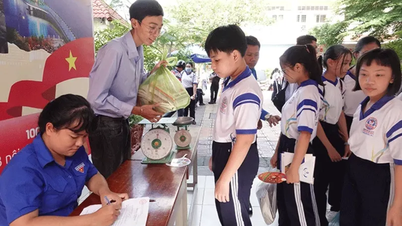
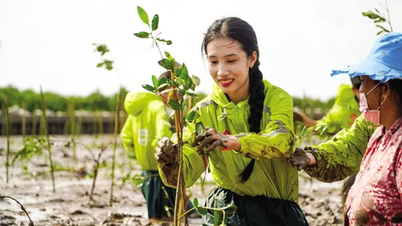
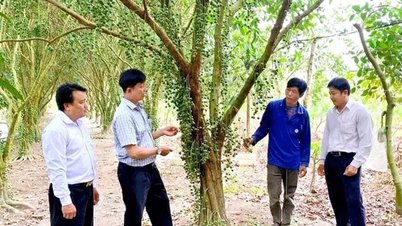
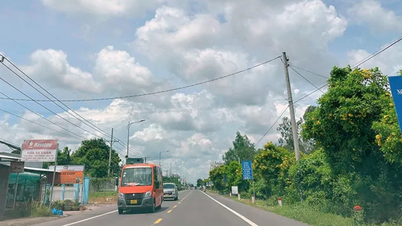







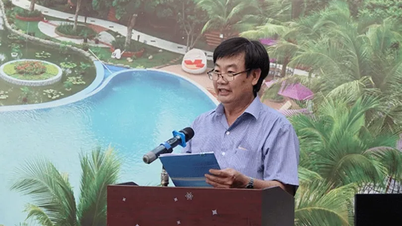
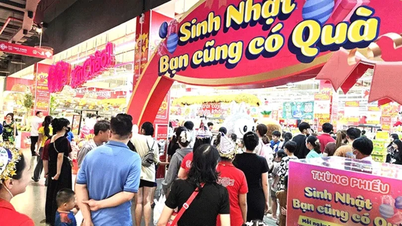
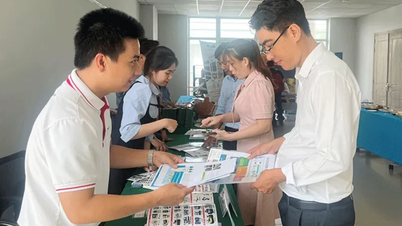
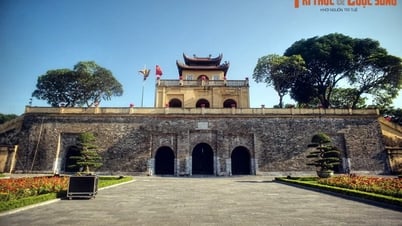

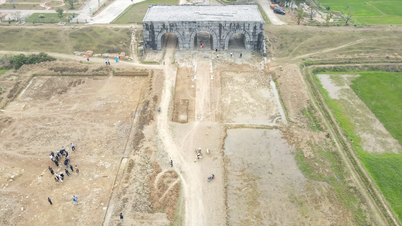

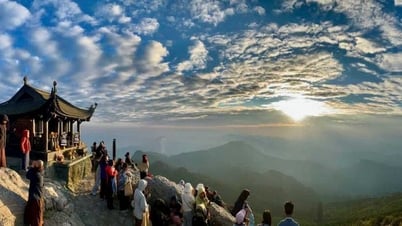

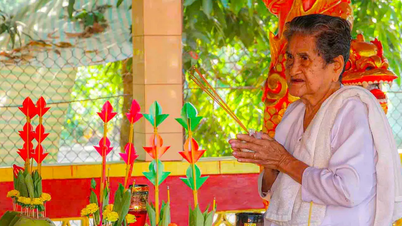

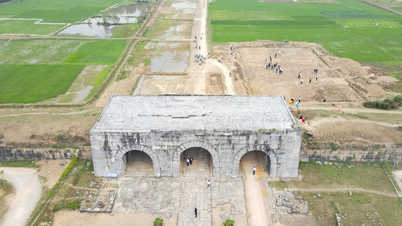






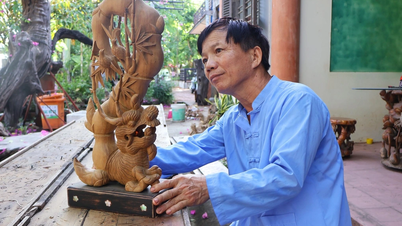

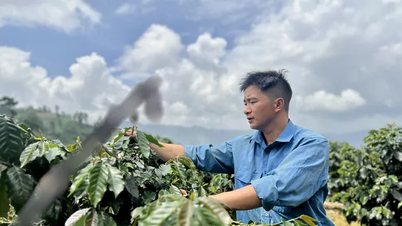

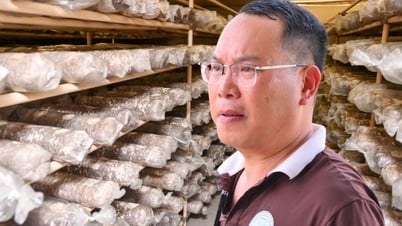



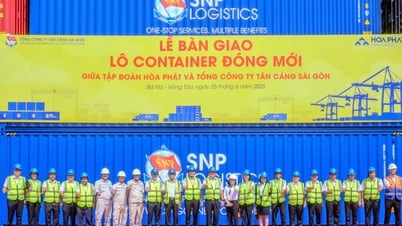



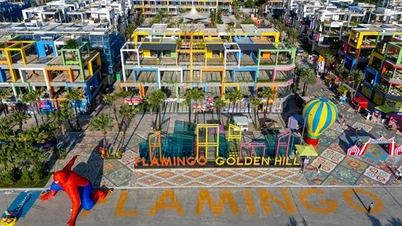




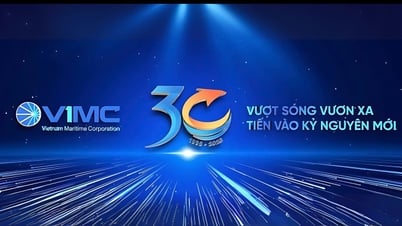
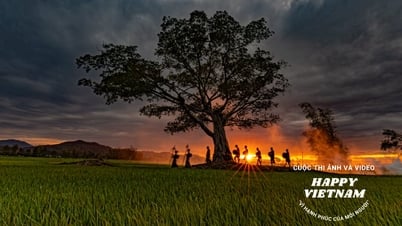
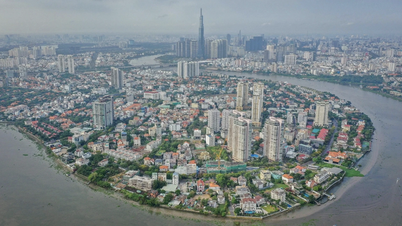







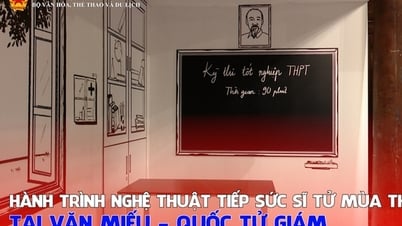

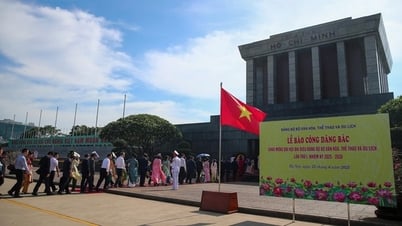
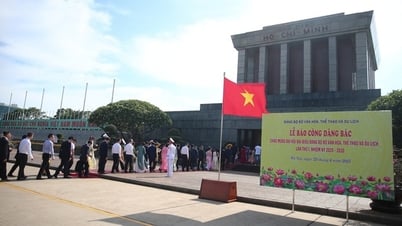
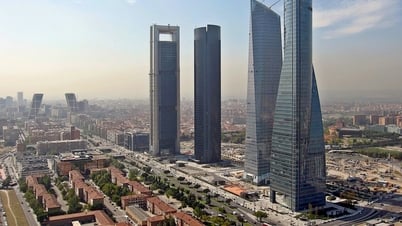

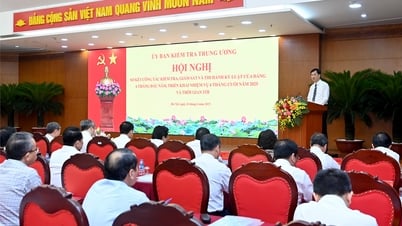

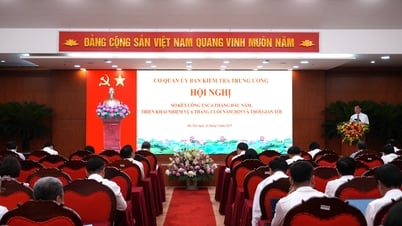
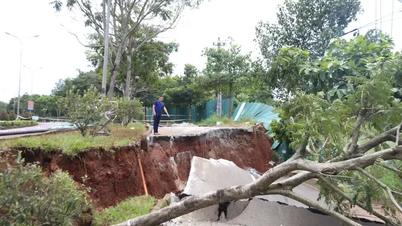
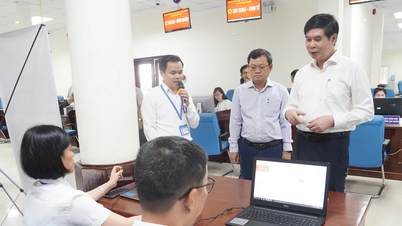
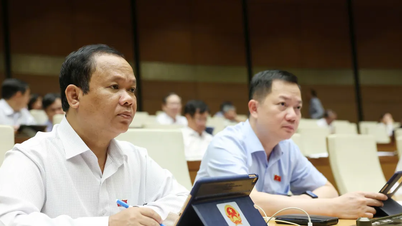
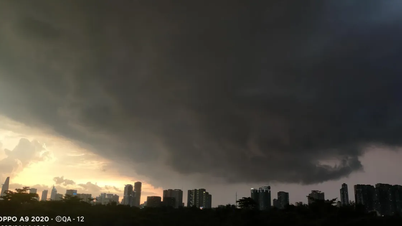
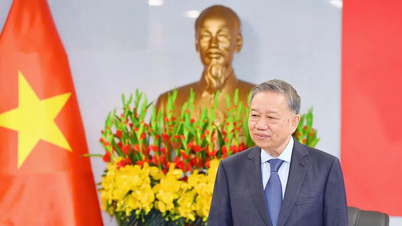
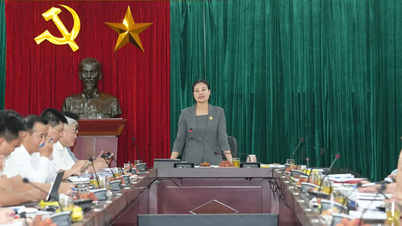




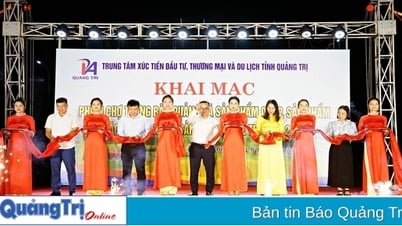








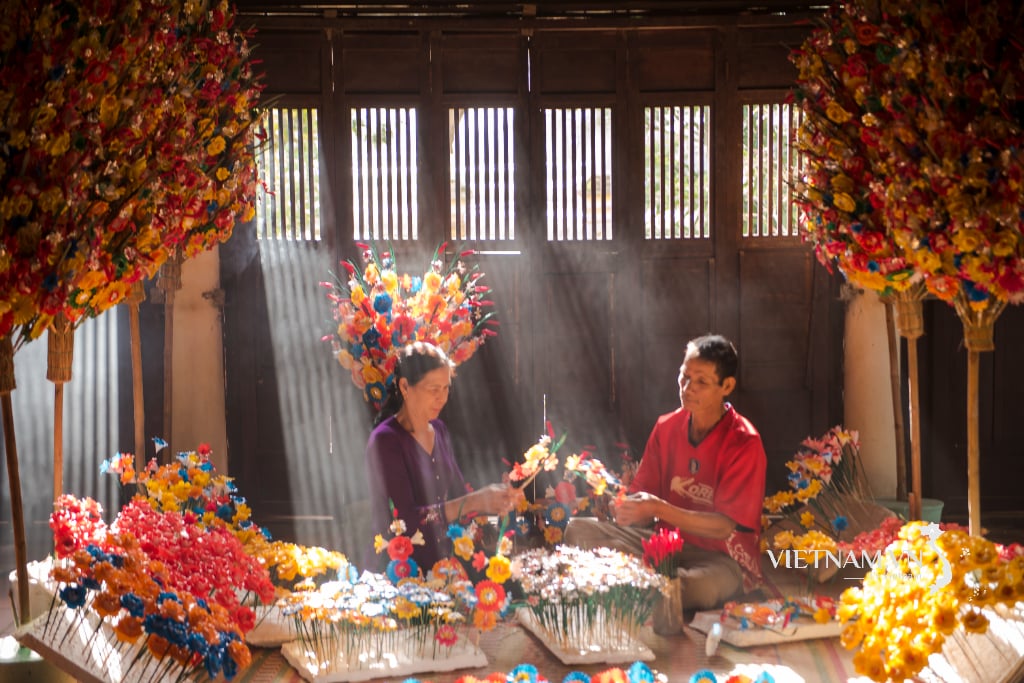
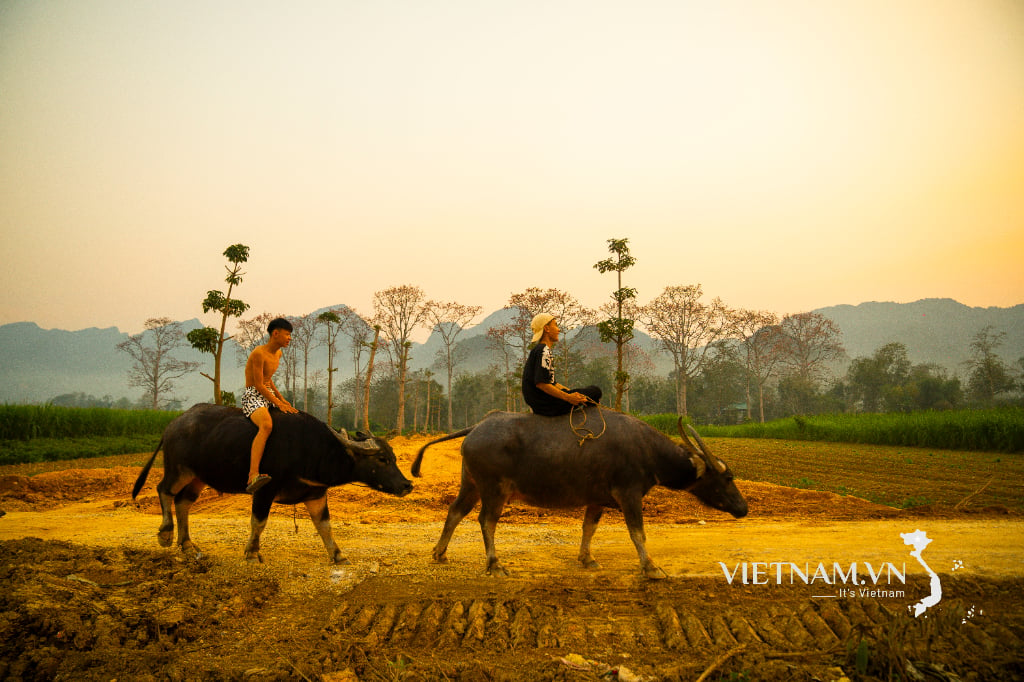
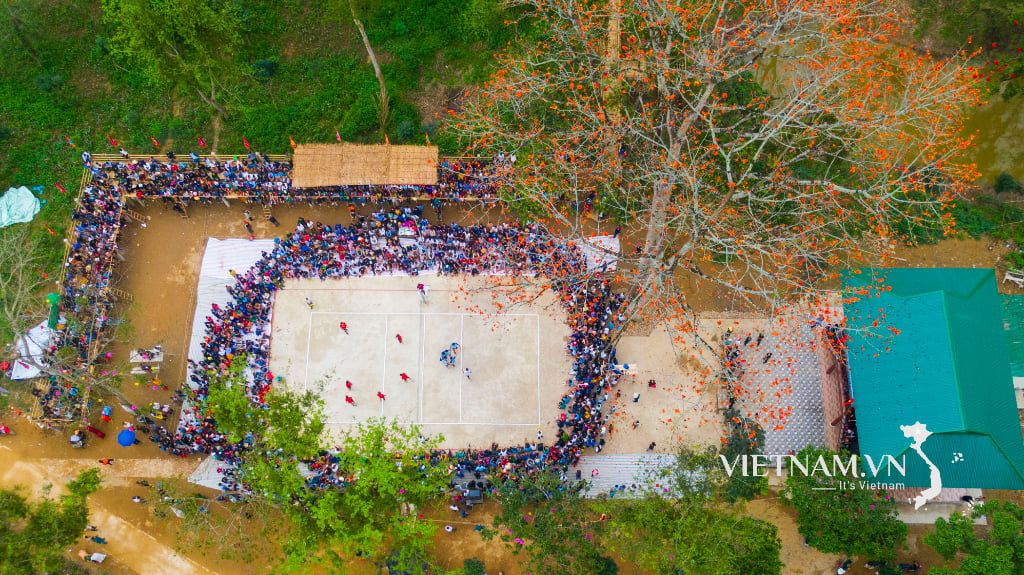
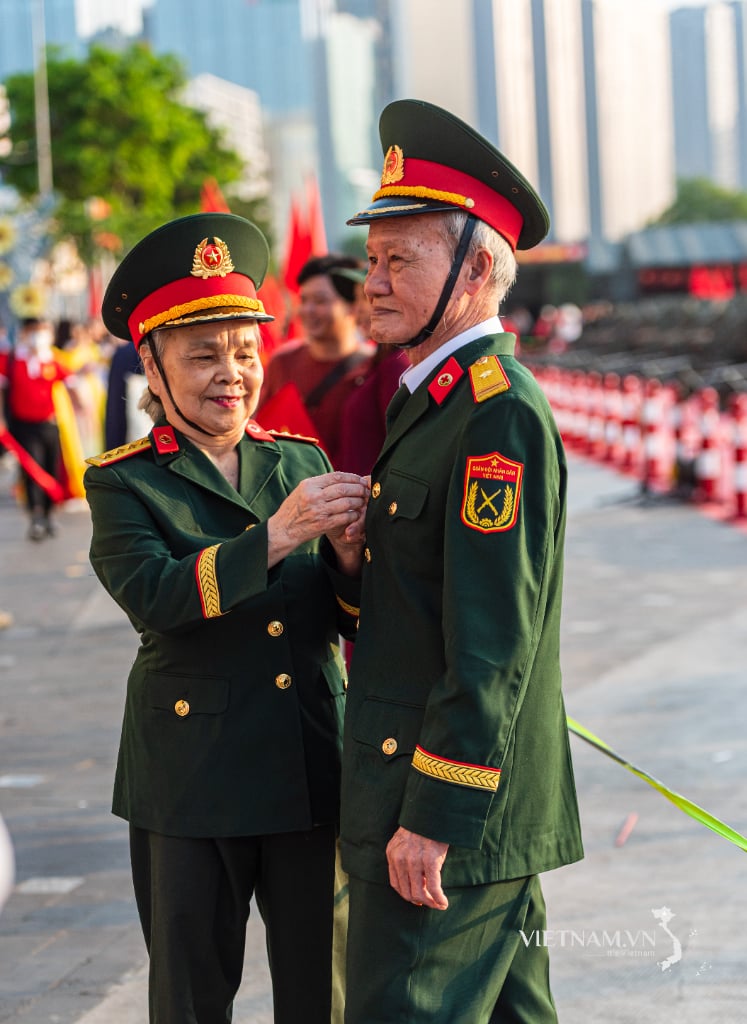
Comment (0)